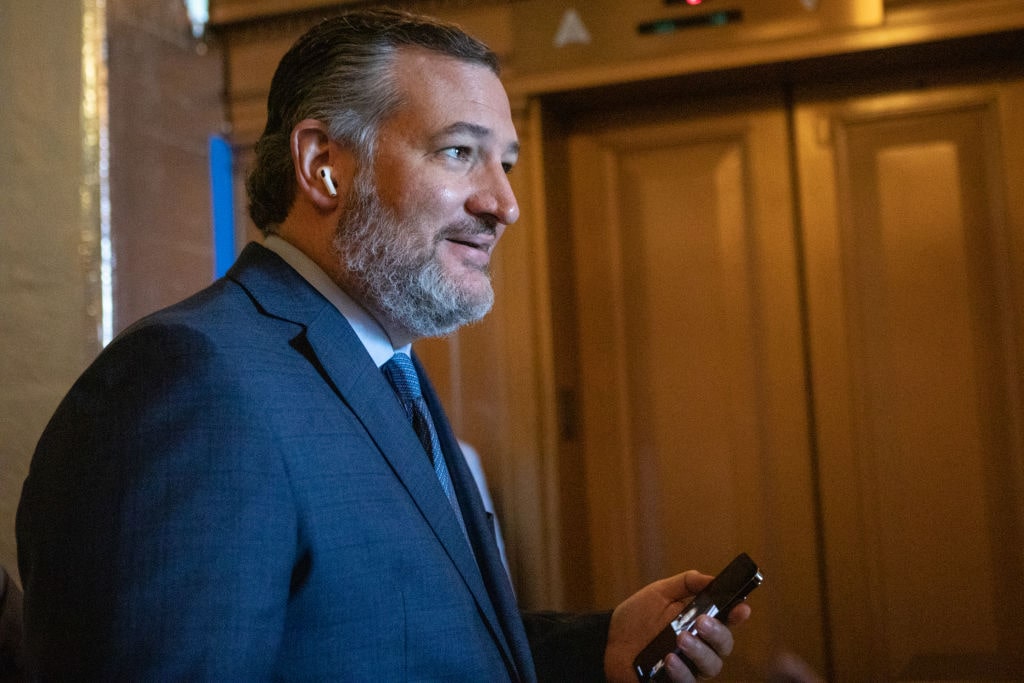Senator Amy Klobuchar (D-MN) killed her own bill ostensibly aimed at empowering smaller media outlets. This comes just days after an inspiring speech about persisting in the face of massive spending by Big Tech companies lobbying against it. So what does it take to collapse such a righteous cause that even money can’t stop it? The silver bullet turned out to be a simple amendment from Sen. Ted Cruz (R-TX) to protect against censorship.
Klobuchar’s Big Tech Battle
 “It’s an incredible amount of money I’m up against,” the Minnesota Democrat told journalist and longtime Code Conference host Kara Swisher on Tuesday, August 6. “I have two lawyers. They have 2,800 lawyers and lobbyists. So I’m not naïve about the David versus Goliath.”
“It’s an incredible amount of money I’m up against,” the Minnesota Democrat told journalist and longtime Code Conference host Kara Swisher on Tuesday, August 6. “I have two lawyers. They have 2,800 lawyers and lobbyists. So I’m not naïve about the David versus Goliath.”
Her mission: to impose a set of rules on Big Tech giants like Google and Facebook, to protect the rights of the little guy, in this case specifically, newsrooms with fewer than 1,500 full-time employees. Klobuchar’s bill is allegedly designed to grant antitrust immunity to these smaller media outlets so that they can come together to negotiate the distribution of their content as a team. And it’s a fight the senator said she intends to win. “Never count us out when the cause is right and it’s something we need to tackle,” she crowed to Swisher, seemingly willing to defend her Journalism Competition and Preservation Act to the last breath. But it was a happier, more optimistic time then. An amendment introduced by a certain distinguished gentleman from Texas hadn’t been passed yet.
Klobuchar-Cruz Kerfuffle
Sen. Klobuchar has been one of the leading faces behind the antitrust charge in Congress, sponsoring several bills aimed at Big Tech that would, in her opinion, better regulate the massive companies and curb their power. Her most recent bill was set to clear the Senate Judiciary Committee on Thursday, but she pulled it from consideration after Sen. Cruz successfully amended it.

(Photo by Anna Rose Layden/Getty Images)
Sen. Cruz insisted it was necessary to get support on the floor and stop what he called media cartels from collaborating on censoring content. The majority agreed; the committee passed the amendment passed 11-10. Cruz’s amendment eliminates the antitrust exemption if either side in the negotiation mentions content moderation. “It simply says the topic of discussion when the two sides get together can’t be censorship. It should be ad revenue, which is what all of this discussion of this markup has focused on,” the senator explained.
Klobuchar, on the other hand, called it a “get out of jail free card.” Since news outlets depend on the antitrust exemption and the covered platforms do not, she argued, the platforms could just raise the issue of content moderation to put an end to the joint negotiations.
Antitrust or Anti-Free Speech?
Sen. Alex Padilla (D-CA) also took issue with the bill and content moderation, but where Cruz aimed to exclude censorship, Padilla wanted it to be part of the deal. The original language did include a prohibition on discriminating against any eligible digital journalism provider that is a member of a joint negotiation, and that’s what the senator from California – and the companies the law would affect – had a problem with. They wanted platforms to have the option to block “extremist” content.
But what qualifies as extremist when social media giants collude with the White House to remove posts the president’s team finds “problematic,” or when companies like YouTube or Spotify demonetize or deplatform conservative content creators? Sen. Cruz’s concerns certainly seem valid. The fact that Sen. Klobuchar pulled her own bill over it speaks volumes about her true concerns, and at least one other Democrat on the committee – Mr. Padilla – never bothered to try hiding his.




